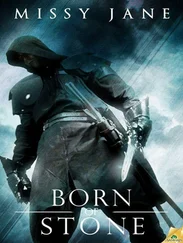Yours, etc.
Eldred The Terrible & etc.
Ida Chisolm weaned her new one at little less than a year old and the baby took to her mush of peas and sweet potatoes with the same toothless puzzlement, then gluttony, as any child. Grace, whenever she wasn’t at school, went about her babysitting duties in silence. At eleven years she had the demeanor of a disgusted, life-strangled sixteen-year-old. As if to speed up and thereby shorten the period of being harnessed to the task, she worked hard to train her little sister on the chamber pot, then the outhouse, and taught her to clean herself. But soon enough recognized a problem and complained about frequent accidents and once the doctor confirmed the incontinence it was a matter of either getting the child to run to the outhouse or to drop her drawers (the loose diaper she had continued to wear, in any case) wherever she stood in the yard, or pasture, or at the edge of the woods, by the barn, wherever. Since she was just a toddler they allowed it, since she did not like soiling herself and wanted to go like everyone else. She tried. A good-humored, even cheerful little child. She seemed intelligent enough but not dangerously impulsive, so Grace let her wander by herself around the house and yard barefoot (except in winter) as freely as a child at least a year or two older. It became a familiar sight to the family and the sharecroppers and tenants, this small scrawny creature baring her bony bum and relieving herself whenever and wherever like one of the animals in their care.
Watching this from the front porch at churning, or from the back porch washing dishes in the pump sink, or emerging from the privy, Grace indulged in what little humor she had in her system, smiling a tight smile and muttering to herself in a low chuckle, shaking her head and going back to work, keeping one eye loosely on the child. Jane was indeed like some kind of herky-jerky windup toy that never wound down till sometime in the evening right after supper when the winder just stopped and clump, down she went. Clean her and put her to bed.
When she got a break from her babysitting Grace would sneak out to the barn and go around it to smoke a cigarette from the Luckies she now kept hidden behind a loose chink in one of the foundation posts. Got to where she liked them so much she began sneaking one after supper, too, watching from shadows for when the washbasin was unoccupied, then hurrying to wash up, brush her teeth, before going to bed without a word to or a glance at anyone. They were all used to that.
When little Jane noticed a rag doll in the Sears catalog, Grace put one together for her using material from a flour sack and filling the shape with hard corn kernels cracked with a hammer. She let Jane help draw on a face with India ink, then stitched over that with blue thread. They made a tiny skirt for it and drew a pair of slippers on its shapeless feet.
She’d thrown her own similar doll into the bushes along the road one day years before, suddenly embarrassed and disgusted with herself for still carrying it in her school satchel. Now, young as she was, she felt a twinge of lost childhood and tried to steel herself against it, turning her thoughts once again to getting away. But she could not harden herself entirely anymore against her feelings for this little girl, her baby sister and the only one in her household she could enjoy even a little bit being around. With her yellow hair and blue eyes, she felt like a changeling left at the door of this cantankerous woman and gloomy man, yet here was this child, this odd one, a defective, dark like their parents but with blue eyes even bluer than hers. She did not want to love her, or as she sometimes referred to her, it , but she thought, I have to love something .
She sat on the porch one afternoon during the autumn Jane would turn three and watched her wander out into the yard and over near the shed across the drive, stop, squat, and instead of what Grace expected from that, saw her reach down and pick something up, hands working like she was winding something around them as she walked, stopped at the edge of the porch, hands raised, eyes wide open with the secret hidden in them.
“Well, what is it?” Grace said. She was looking on this strange and beautiful child, big eyes so expressive, as if wiser or more knowing than possible.
Little Jane opened her hands and a tiny garden snake no bigger around than a night crawler and no longer than the length of a knitting needle popped up and curled around her hands as if it were the strange birth of an extra, wild, writhing digit. Grace stood up as if called to military attention, not knowing whether to go knock the snake from the child’s hands or trust to luck it was a harmless one.
“Put it down, now,” she said as calmly as she could. But Jane closed her eyes and laughed and ran past her into the house and in a moment she heard her mother shriek and holler to “get that thing out of this house right now!”
Later, she looked on as their father gave Jane a lesson on which snakes were safe and which were not. He drew pictures of the poisonous snakes’ broad, triangular heads, and brought out an old rattle from one he’d killed in the yard, shook it for her. “You hear that,” he said, “you stop, stand real still, figure out where it is, and you back away. You see this here cottonmouth moccasin, you run,” and he described and drew one, told her their coloring and shape. Told her about coral snakes: Red touch yellow, kill a fellow; red touch black, friend to Jack . She liked that rhyme enough to mimic it back to him, making him smile a rare smile.
He said, “Anyway, you see one of those snakes, you hightail it out of there. And if you can’t tell, don’t chance it.”
She asked if she could have the rattle to keep on a string around her neck.
He seemed amused by this but said he thought not, as it might attract another snake.
“All right,” she said, handing the rattle back. Her father put it away in the little box on the mantel where he kept it along with a bear’s tooth and the tiny mole skull Jane herself had found one day, just roaming around the yard.
When they left, Grace went to the mantel, took out the rattle, and made herself a necklace of it by poking a hole in the open end and lacing through it a length of pale thread. She made it long enough so the rattle would be hidden by her blouse. She hooked a finger under it and gave it a little shake, and something about the sound made her heart beat a little faster.
Little Jane heard it one day and was excited. “You made a rattle necklace!” she said. “Papa wouldn’t let me.”
“I know.”
“He said it might make a real snake come after me.”
“I doubt that,” Grace said. “You want it?”
Jane seemed to think about it, then shook her head with a mysterious grin.
Her mother asked Grace one day what she had on that thread around her neck.
“Nothing,” she said.
“I can see there’s something on it, there under your blouse. I can hear it making some kind of little noise when you move around.”
“Nothing but the rattle of my little old heart,” Grace said, and ignored the look her mother gave her.
LEAVING THE CHILD’S care to her older daughter had made it a little easier for Ida Chisolm to avoid her dark thoughts, though not entirely. When she had a little break she sat on the front porch, dipped a bit of snuff — which she knew was smallish sinful but did it anyway, a soul was corrupt at birth and adding a little vice wouldn’t change the equation much — and spat into the bare dirt of the yard doing the best she could to empty her clamorous mind. Crows banked about the grove of pine and hardwood down by the cow pond and flew back up on fluff-cranked wings into the pecans near the barn, settling in their gnarly limbs like black fluttering shadows into the foliage of clouded thoughts she could not and did not bother to plumb. Late fall blackbirds swept in waves to the oaks at the yard’s edge, and their deafening, squawking, creaking calls, the cacophonous tuning of a mad avian symphony, drew the grief-borne anger from her heart, into the air, and swept it away in long, almost soothing moments of something like peace. The occasional fluid murmuration of migrating starlings, a wondrous sight when she was a child, could evoke in her all over again a strange sense of foreboding.
Читать дальше












